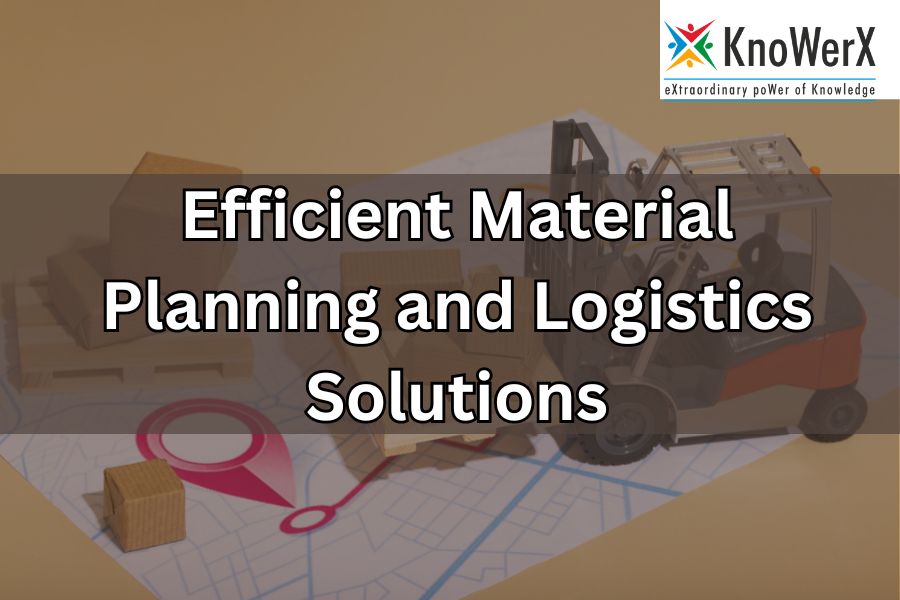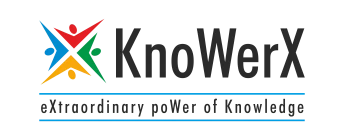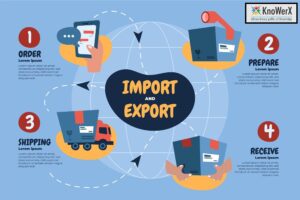Optimizing Material Planning and Logistics: Strategies for Efficiency
Material planning and logistics are pivotal aspects of supply chain management, essential for optimizing operations and reducing costs. Businesses that effectively manage these areas can enhance productivity, meet customer demands seamlessly, and maintain a competitive edge in the market.
Key Components of Material Planning

Material planning encompasses critical processes that ensure smooth supply chain operations:
Demand forecasting is crucial for anticipating market needs and planning production schedules accordingly. By accurately predicting demand trends, businesses can optimize inventory levels and reduce the risk of stockouts, thereby improving overall efficiency in material planning and logistics.
Supplier relationship management plays a vital role in maintaining reliable partnerships. Strong relationships foster collaboration, ensuring timely deliveries and competitive pricing, which are integral to effective material planning and logistics strategies.
Production scheduling and capacity planning optimize resource utilization. Efficient scheduling minimizes downtime and maximizes throughput, contributing significantly to the overall efficiency of operations.
Strategies for Efficient Material Planning
Implementing Just-in-Time (JIT) inventory management is a proven strategy to streamline operations. JIT helps minimize inventory holding costs and reduce wastage by ensuring that materials arrive precisely when needed, thereby enhancing operational efficiency and reducing overall costs.
Advanced forecasting techniques leverage historical data and predictive analytics to refine demand forecasts. This proactive approach mitigates supply chain disruptions and enhances responsiveness, thereby improving efficiency across the supply chain.
Technology integration provides real-time visibility into material flows and inventory levels. Automated systems streamline processes, improving accuracy and decision-making. These technological advancements facilitate proactive management and enhance overall operational efficiency.
Optimizing Logistics Operations
Effective transportation management ensures timely deliveries while minimizing costs. Route optimization and efficient fleet management reduce fuel consumption and the carbon footprint, thereby contributing to overall operational efficiency.
Warehouse layout and storage optimization are crucial for enhancing space utilization and accessibility. Smart storage solutions improve inventory management, enabling faster order fulfillment and improving overall efficiency.
Integration of automation and digital solutions such as RFID tracking and IoT devices enhances operational efficiency. These technologies provide real-time data insights, facilitating proactive decision-making and streamlining logistics operations.
Education and Training
Education and training programs are crucial for developing expertise in material planning and logistics:
At KnoWerX, we recognize the critical role of education and training in developing expertise in material planning and logistics. Our CDMP (Certified Direct Material Planner) Course is designed to equip professionals with specialized knowledge of supply chain dynamics, focusing on essential areas such as demand forecasting and inventory management crucial for effective material planning and logistics.
Completion of our certification programs validates skills and knowledge in material planning and logistics, significantly enhancing career prospects and organizational capabilities in supply chain management. Our comprehensive curriculum ensures that professionals are well-prepared to tackle real-world challenges and drive strategic initiatives in material planning and logistics.
Benefits of Efficient Material Planning and Logistics
Cost reduction through inventory optimization is a significant benefit of effective management. By maintaining optimal stock levels, businesses minimize storage costs and reduce the risk of obsolete inventory, thereby improving overall efficiency.
Improved on-time delivery and customer satisfaction are direct outcomes of streamlined operations. Reliable supply chains ensure products reach customers promptly, enhancing service levels and customer loyalty.
Enhanced agility to respond to market changes is critical in dynamic business environments. Efficient management enables businesses to adjust production and logistics strategies swiftly in response to market fluctuations, thereby maintaining competitiveness and improving overall efficiency.
Challenges and Considerations
Despite its benefits, material planning and logistics face challenges such as supply chain disruptions and fluctuating market demands. Businesses must develop robust contingency plans and agile strategies to mitigate risks effectively in material planning and logistics.
FAQs: Frequently Asked Questions
What is material planning in supply chain management?
Material planning involves forecasting demand, managing supplier relationships, and scheduling production to ensure smooth supply chain operations. It aims to optimize inventory levels and reduce stockouts, contributing to overall efficiency.
How does demand forecasting benefit material planning and logistics?
Demand forecasting helps anticipate market needs, allowing businesses to plan production schedules and manage inventory effectively. Accurate predictions minimize stockouts and overstock situations, enhancing operational efficiency.
Why is supplier relationship management important in material planning?
Strong supplier relationships ensure reliable partnerships, timely deliveries, and competitive pricing. Effective supplier management fosters collaboration, which is essential for successful material planning and logistics strategies
How do advanced forecasting techniques improve material planning?
Advanced forecasting techniques use historical data and predictive analytics to refine demand forecasts. This proactive approach mitigates supply chain disruptions and enhances responsiveness, improving efficiency across the supply chain.
What role does technology play in material planning and logistics?
Technology integration provides real-time visibility into material flows and inventory levels. Automated systems streamline processes, improve accuracy, and facilitate proactive decision-making, enhancing efficiency in material planning and logistics.
End Notes

At KnoWerX, we understand that efficient material planning and logistics are pivotal for achieving operational excellence and sustaining competitiveness in the global marketplace. Through our CDMP (Certified Direct Material Planner) Course, we equip supply chain professionals with strategic insights and advanced skills necessary to optimize supply chain efficiency.
By leveraging cutting-edge technologies and best practices in material planning and logistics, our graduates are prepared to drive cost reductions, enhance customer satisfaction, and ensure seamless operations. Join KnoWerX today to transform your supply chain management and stay ahead in today’s dynamic business environment.
Image Reference: Freepik
Disclaimer: All trademarks, logos, and brand names are the property of their respective owners. All company, product, and service names used in this website are for identification purposes only. Use of these names, trademarks, and brands does not imply endorsement.



